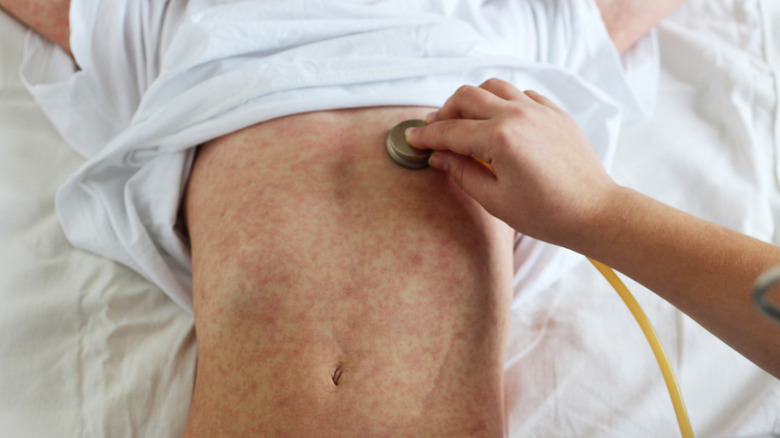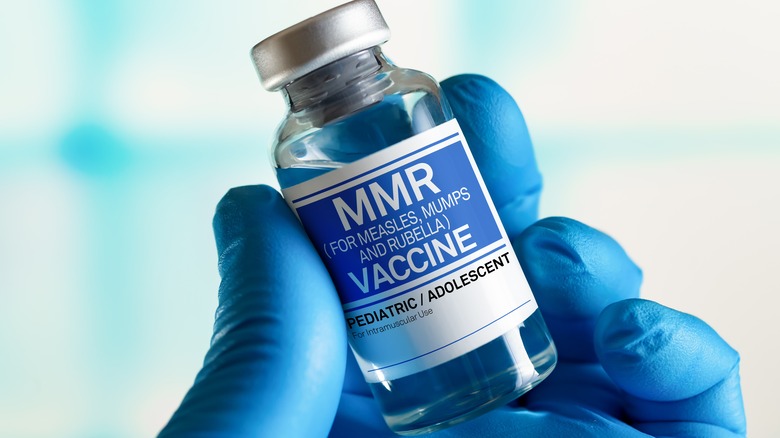Measles, Mumps And Rubella: What's The Difference?
Although they are often grouped together, measles, mumps, and rubella are all different types of viral diseases that can be very serious and even life-threatening, as explained by WebMD.
Measles presents as a red rash that slowly spreads across the body, starting at the head (per WebMD). It is accompanied by other symptoms, including congestion, a cough, and pink eye. In extreme cases, the virus can infect the lungs and lead to pneumonia or even cause inflammation in the brain, in turn leaving behind extensive brain damage. The Centers for Disease Control and Prevention (CDC) adds that symptoms begin anywhere from one to two weeks after infection and that certain groups are at a higher risk of complications, including children younger than 5, pregnant women, and adults older than 20.
Mumps targets the salivary glands near the ears, according to the Mayo Clinic. When infected, these glands become swollen and painful. Co-occurring symptoms include fever, weakness, decreased appetite, and achy muscles. More serious complications, such as brain swelling, pancreatitis, and heart problems, can also take place.
Finally, rubella shares symptoms with both measles and mumps (per WebMD). Those infected will notice a rash on the face and swelling in the glands behind the ears. There may also be swelling in other parts of the body. While rubella isn't typically fatal, it can cause serious birth defects, especially if a pregnant woman is infected during the first trimester.
How to treat measles, mumps, and rubella
The best way to treat measles, mumps, and rubella is actually to prevent it with the MMR vaccine, which the CDC recommends starting at one year of age. This vaccine has been around for decades, having been originally developed by Dr. Maurice Hilleman in 1971, according to the Children's Hospital of Philadelphia.
While the MMR vaccine has been shown to be safe (via the CDC) and is far safer than catching any of these three viruses, it is also important to note that certain individuals should abstain from getting the vaccine. These include anyone with allergies to components of the vaccine, pregnant women, anyone with a weakened immune system, and recent blood transfusion donors and recipients.
If the vaccine isn't an option for you or your family, there are ways to manage the symptoms caused by measles, mumps, and rubella, especially when caught early. For measles, the Mayo Clinic points out that fever reducers, antibiotics, and vitamin A are all common treatments. A mumps infection will likely pass on its own within two weeks, but infected individuals can lessen symptoms with painkillers, cold compresses on swollen glands, and bed rest and fluids, according to the U.K.'s National Health Service. Similar to mumps, rubella can be managed with bed rest and fever reducers until it passes, as explained by the CDC. That being said, if you notice that symptoms are worsening or complications are arising, you should always seek immediate medical attention.


